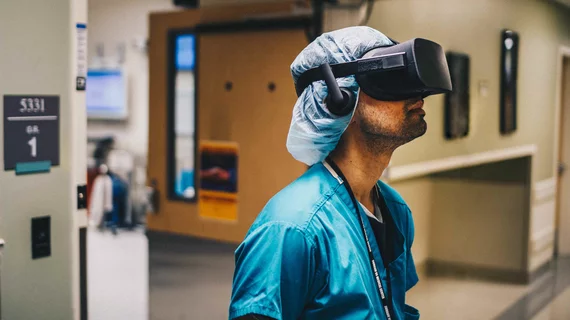VR app provides operating experience for medical students
GIBLIB, an Los Angeles-based streaming media platform, has launched a virtual reality (VR) app that provides an immersive operating room (OR) experience to medical students and physicians.
The app uses 360-degree VR content of both filmed and live-streamed surgeries to emulate a complete OR environment for students and practicing physicians. It’s through partnerships with leading academic medical centers, like Cedars-Sinai and Stanford Children’s Hospital, that GIBLIB is able to provide the content, which can also be accessed at any time through the app.
The hope is the VR app will enhance surgical education for students and physicians by providing insight into new and updated procedural techniques from top experts. The app may also teach students and physicians how to best conduct themselves during procedures and use up-to-date surgical and robotic equipment.
VR—along with AI—are among the top trends expected to drive the healthcare industry. VR and mixed reality for medical education was named as one of the top 10 medical innovations for 2019 by Cleveland Clinic physicians and scientists. VR came in at No. 6, while the advent of AI in healthcare came in at No. 2.
“The latest surgical techniques and procedural best practices are advancing faster than ever before, and the ability to gain access to educational content that keeps surgeons up-to-date needs to meet demand,” Brian Conyer, chief executive officer and co-founder of GIBLIB, said in a prepared statement. “Our goal is to bridge the gap between medical professionals and the knowledge they need in order to enhance their techniques in a way that is universally accessible and retains the authenticity of the learning experience.”

